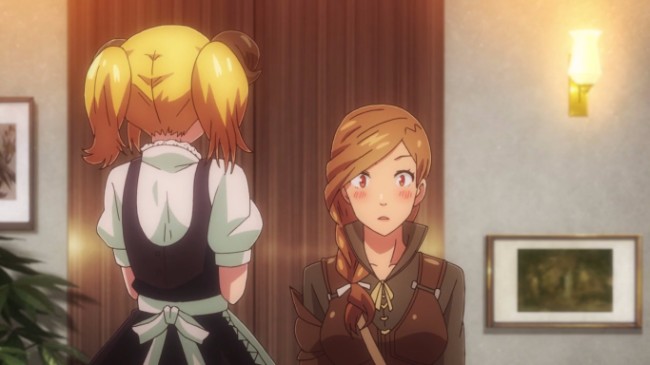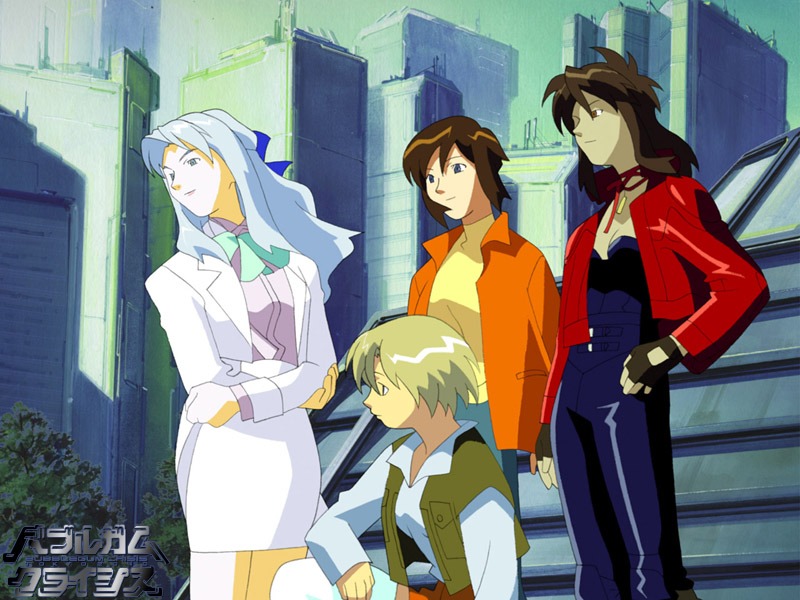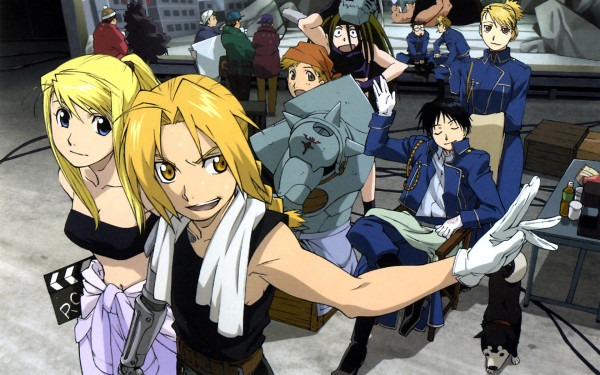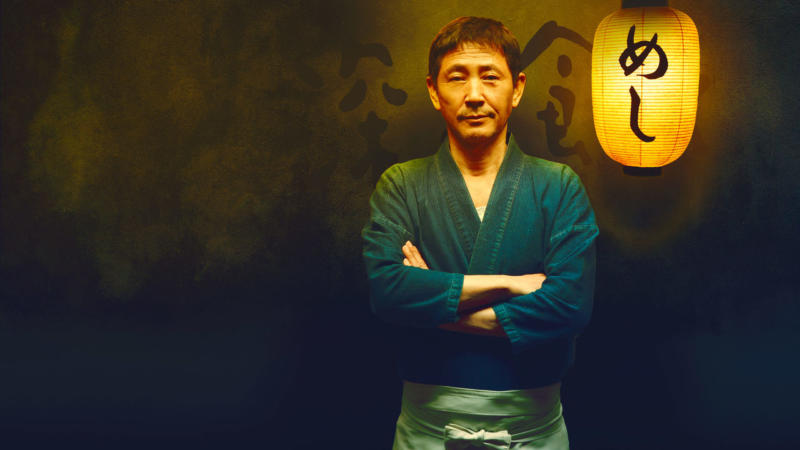 One night as I scrolled through Netflix, I stumbled across Midnight Diner: Tokyo, a half hour show that focuses on, well, a midnight diner. The tiny eatery sits in one of the many narrow alleyways of Tokyo, well off the neon main streets. As you may suspect, some interesting characters appear in the late, late hours. Based on a manga, this live-action show centers on the small, but cozy confines and the lives that drift in an out of the space. The diner’s owner, simply called the Master, offers only one item on his menu, pork soup, but he will make anything upon request as long as he has the ingredients.
One night as I scrolled through Netflix, I stumbled across Midnight Diner: Tokyo, a half hour show that focuses on, well, a midnight diner. The tiny eatery sits in one of the many narrow alleyways of Tokyo, well off the neon main streets. As you may suspect, some interesting characters appear in the late, late hours. Based on a manga, this live-action show centers on the small, but cozy confines and the lives that drift in an out of the space. The diner’s owner, simply called the Master, offers only one item on his menu, pork soup, but he will make anything upon request as long as he has the ingredients.
These requested dishes brings together the various diners, and as an added bonus at the end of each episode, the show explains how to make each dish. As you may suspect, the diner has regulars that appear in various episodes. An elderly gentleman named Chu becomes almost a part of the diner’s furnishings. Visitors include young women, transvestites, high-powered businessmen, and even porn stars. The Master acts as a sounding board, listening to his visitor’s stories and offering advice when asked. He possess a sad warmth, and he doesn’t reveal much about his personal life. At least, he doesn’t during the single season Netflix has. But the show offers hints. Interestingly, the diners don’t really attempt to learn much about him. They are engrossed in their own affairs, which is realistic from my own experiences working with the public. Despite the Master’s relative quiet, the show has a pleasant mix of sadness and happiness. Episodes end on a happy note, which I found a welcome reprieve from the often overbearing shows that fill television nowadays.
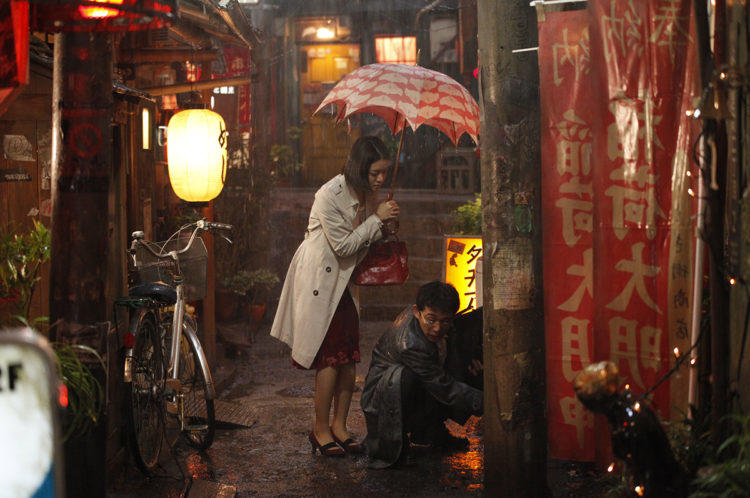 The Master refrains from interfering with the hi-jinks of his customers. He prefers to disappear into the background and listen, sometimes facilitating conversation with a well-placed treat or drink when conversation slows. He only intervenes in one episode when a comic duo beings to fight. For the Master, his restaurant is a place of sanctuary.
The Master refrains from interfering with the hi-jinks of his customers. He prefers to disappear into the background and listen, sometimes facilitating conversation with a well-placed treat or drink when conversation slows. He only intervenes in one episode when a comic duo beings to fight. For the Master, his restaurant is a place of sanctuary.
Throughout the season, small bits of philosophy and life-lessons spice the stories, such as the idea that a good day must follow a bad one. A few central themes keep reappearing, however. Although they are not overtly stated, they reside in the subtext of the diner’s purpose. First, the show urges us to be introspective as we grow older. Time passes swiftly, and it does us well to take time to dwell on memory. The second subtext ties together with this idea: to carve out small pleasures in the daily routine. It’s easy to lose sight of what gives life meaning as we go about the daily routine of work and home life. The small pleasures, such as a good hot-pot meal, lend meaning and help prevent the slide toward drudgery. The Master seeks to provide a small area of pleasantness for this very reason. He often offers food on the house for people who are obviously down or having a bad day.
The final theme of the diner involves togetherness. People from all walks of life sit elbow to elbow in the small, not-quite claustrophobic confides of the diner, sharing in conversation and food. The diner acts as a sanctum of connection between people who would normally just walk past each other without a thought.
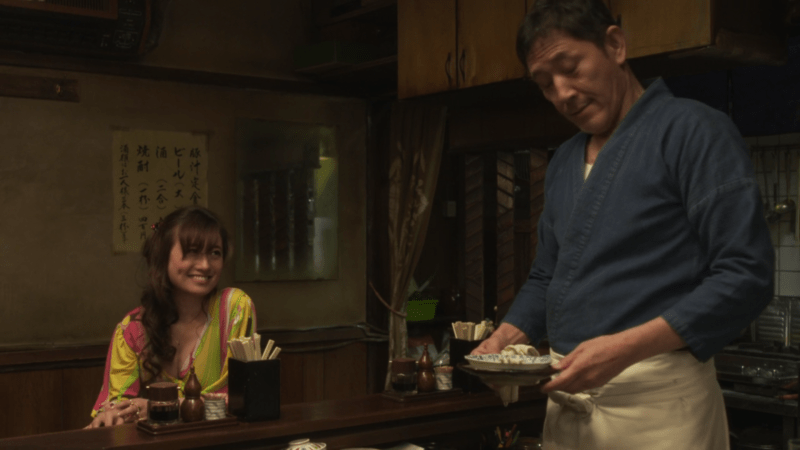 Midnight Diner is a pleasant show you need to watch. A few of its episodes are odd, but then it is a Japanese show with different sensibilities. It often ends on an upbeat note, tinged with a touch of reflection. Its themes and focus on connecting people is needed in our divided society. You’ll notice throughout the show that people don’t chatter on cell phones. Rather, they sit next to each other, enjoying food and conversation. You’ll see quiet visitors who sit back and enjoy the banter of the old men. You’ll see the prim and proper sit next to transvestites with brightly dyed hair. All the while the Master works to make the conversation smooth with his food. Regular customers will bring treats to share with the Master and whoever is at the diner at the time. At the center of it all is the idea of connection and pleasantness, even when people disagree with each other.
Midnight Diner is a pleasant show you need to watch. A few of its episodes are odd, but then it is a Japanese show with different sensibilities. It often ends on an upbeat note, tinged with a touch of reflection. Its themes and focus on connecting people is needed in our divided society. You’ll notice throughout the show that people don’t chatter on cell phones. Rather, they sit next to each other, enjoying food and conversation. You’ll see quiet visitors who sit back and enjoy the banter of the old men. You’ll see the prim and proper sit next to transvestites with brightly dyed hair. All the while the Master works to make the conversation smooth with his food. Regular customers will bring treats to share with the Master and whoever is at the diner at the time. At the center of it all is the idea of connection and pleasantness, even when people disagree with each other.
That, perhaps, is the lesson we Americans need to learn the most.
